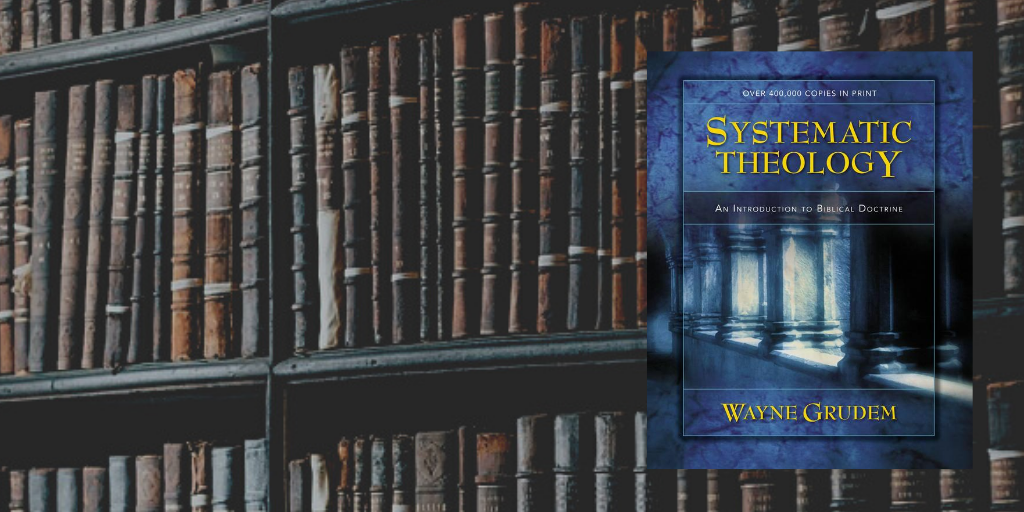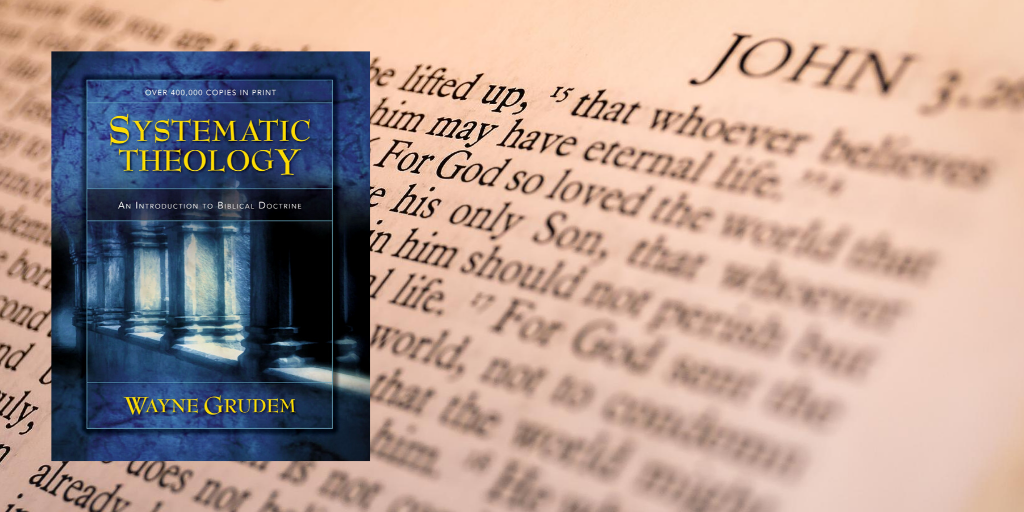Reading Systematic Theology with Wayne Grudem – What belongs in the Bible and what does not belong?
This post is part of a 50+ post series from the classic work by Wayne Grudem (PhD, Cambridge), Systematic Theology: An Introduction to Biblical Doctrine. The aim of each post is to provide an overview of each chapter in the book and related resources for each topic.
Synopsis of Chapter
In Wayne Grudem’s third chapter of Systematic Theology, he underscores the importance of the question of what belongs in our Christian Scriptures. He defines the canon of Scripture as the list of all the books that belong in the Bible. The reason why we should be concerned about the books of the Bible is we want to know everything the Lord has declared to us in order to obey him fully and worship him appropriately. God was also concerned about the question of canon when he instructed the believers through Moses, “You shall not add to the word that I command you, nor take from it, that you may keep the commandments of the LORD your God that I command you.” (Deuteronomy 4:2)
The two sections of the Christian canon are the Old and New Testaments. The Old Testament canon was the foundational text for the Hebrew or Jewish believers before Christ. After Christ’s advent, Christian believers inherited the Old Testament scriptures and added more books as the New Testament was being written. There are other potential books that were left out of the Christian canon so the canon of Scripture includes both the current list of books of the Bible and excludes those books that might otherwise be considered canon.
Old Testament Canon
The Old Testament canon began to be collected beginning at Mount Sinai with the Ten Commandments. The original tablets were deposited in the Ark of the Covenant (Deuteronomy 10:5) and eventually other Scriptures were added, most notably the Torah or first five books of Moses (Deuteronomy 31:24-26).
The Prophets held a special place in Old Testament history by both proclaiming the will of the Lord to his people and also adding to the Old Testament canon in their writings. Some of the direct references to prophets writing books included Samuel (1 Samuel 10:25), Isaiah (2 Chronicles 26:22), and Jeremiah (Jeremiah 30:2). These books were eventually added to the Hebrew Scriptures.
Other books were added to the Old Testament throughout the history of the Jewish people before Christ These books were associated with either prominent kings like David (Psalms) or Solomon (Proverbs, Ecclesiastes), or prophets like Isaiah, Ezekiel, or the minor prophets after Ezekiel. The last of the prophets was Malachi who wrote his book around 435 BC. After that, Jewish believers of that time recognize a “silence of heaven” where prophets no longer ministered as they had in the past. The Apocrypha recognizes that time of silence when they were awaiting a prophet to tell them what to do – because there were no more prophets in the land (1 Maccabees 4:45-46).
One special set of books that bears mentioning is the Apocrypha. This group of books was written between Malachi and the New Testament and includes works such as 1 & 2 Esdras, Tobit, Judith, Baruch, and others. The Apocrypha is not accepted by Protestant Christians as authoritative nor was it ever considered Scripture by the Jews. Even the Catholic church did not officially recognize it as scripture until the Council of Trent (1546), which is a very late development in church history.
The New Testament Canon
As the Old Testament canon was closing, Malachi prophesied about a Messiah who was to come (Malachi 3:1-4, 4:1-6). The Messiah arrived in the incarnation of Jesus Christ along with a new era in God’s redemptive history. A new series of books were penned to codify the new covenant or new testament that Christ inaugurated.
The New Testament books were written by the apostles or those closely associated with the apostles. The words of the apostles were claimed to have the same authority as the Old Testament Scriptures. For instance, the apostle Peter encouraged believers to remember the commandment from the Lord through the apostles (2 Peter 3:2). In addition, lying to apostles was equivalent to lying to God (Acts 5:4), and finally the apostle Paul claimed authority to command as the Lord commanded (1 Corinthians 14:37). These were bold claims. And the church has accepted them to a greater or lesser extent since the first century.
In AD 367, in his Thirty-ninth Paschal letter, Athanasius wrote the exact list of 27 New Testament books that we use today. Within 30 years, churches in both the eastern and western Mediterranean had accepted Athanasius’ canon. Although that was the final list of books, it came after centuries of discussions and debate in early church history, especially about the canonicity of 2 Peter, 2 John, 3 John, and Jude. Ultimately, the majority of the church accepted these 27 books that we now have in our canon.
On whether the New Testament canon is closed, Hebrews 1:1-2a appears to speak to the question. “Long ago, at many times and in many ways, God spoke to our fathers by the prophets, but in these last days he has spoken to us by his Son.” So Christ’s words and subsequent apostolic explanation of his ministry was sealed in the first century after the death of the apostles. Any book produced after the first century was automatically rejected since the apostles could not have written or approved of a post-first century book. And any person who takes away or adds to the canon should be concerned about eternal punishment. Though the original threat of “plagues” concerned the book of Revelation, (Revelation 22:18-19), the same principle applies to all of God’s words.
Conclusion: The Canon of Scripture is A Comfort to Believers
The canon of Scripture is a crucial part of the Christian faith. It’s essential we include all of the books God gave the church and exclude any pretenders so we are obeying and worshiping God properly. Once we are confident we have those books that God wants us to obey, we should be comforted to know the Lord has not left us uninformed or abandoned.
“All Scripture is breathed out by God and profitable for teaching, for reproof, for correction, and for training in righteousness.” 2 Timothy 3:16
Special Terms
- Apocrypha
- apostle
Resources: Wayne Grudem
- Wayne Grudem: Book: Systematic Theology: An Introduction to Biblical Doctrine
- Wayne Grudem: 148 Lectures on Systematic Theology
Related Resources
- Blue Letter Bible: The Canon of Scripture (answers to common questions)
- Bible Researcher: The Canon of Scripture (more resources)
- Samuel Waldron: The Canon of Scripture (book)








